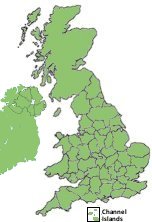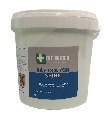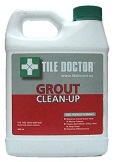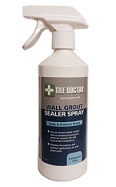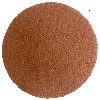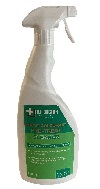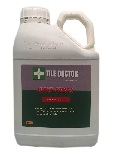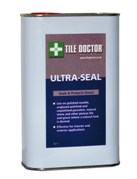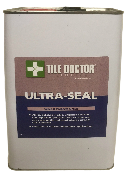|
Menu Local Service Join our Mailing List Featured
Tile Doctor Shine is a crystallising powder that provides a very high shine and tough durable finish on polished stone.
£39.90
Tile Doctor Stone Oil is an easy to apply pre-polish impregnating sealer, ideal for low porosity stone and terracotta designed to enhance the colour and texture of floors and improve mechanical strength once cured.
£16.90
Testimonials |
|
Category
Help with Tile and Stone >
Porcelain Tile Cleaning
 Harder than ceramic tiles modern production methods have spurred a growth in the availability and design of Porcelain tiles which are known for their durability and water resistance making them a popular option for floors. Porcelain tiles come in three categories and its well worth knowing which type you have in order to maintain them properly, it can be very difficult to tell so if your unsure you will need to ask your supplier.
Cleaning Porcelain TilesPorcelain tiles are generally fully glazed, even the matt porcelain tile is fully glazed so this means they won't need to be sealed unless they are textured (see below) however the textured tiles can trap dirt in the groves (unless sealed) and thus will need to be cleaned out with Tile Doctor Pro-Clean and rinsed with water afterwards. Polished Porcelain tiles generally only require a light clean using Tile Doctor Neutral Cleaner where only a couple of cap fulls diluted in a bucket of warm water should be sufficient. Additionally We find that a Green No. 4 Burnishing pad attached to a slow speed buffing machine will polish up the porcelain to a very high shine, then use a vacuum to remove any dust created. Using excessive amounts of cleaning agents on polished porcelain actually creates problems with chemical build-up so the method recommend above is the correct process for these type of tiles.
Most Ceramic tiles are quite easy to clean with these methods however grout is normally recessed and this can act as a dirt trap on floor tiles when they are mopped leading to a build-up of dirt on the grout, this can be resolved using Tile Doctor Pro-Clean and then once clean and fully dry, seal the grout with one coat of Tile Doctor Ultra-Seal applied using a pipette along the grout line. Sealing Porcelain TilesHere at Tile Doctor we often get asked to recommend a sealer for Porcelain Tiles; the simple answer is they don't usually need one however there are a couple of exceptions: For many examples of Porcelain tile cleaning activities carried out by UK Tile Doctors please visit http://Porcelain.TileCleaning.co.uk
Recommended Products for Porcelain TilesWhen using our products please take time to familiarise yourself with the directions on the back of the bottle first.
Final Polishing, use dry, add a small amount of water to get a High Shine Finish.
700005
£45.00
Easy-to use waterborne epoxy that recolours, seals and rejuvenates existing grout joints. Recommended for use on sanded, unsanded and epoxy grout joints.
210237
£26.80
All-in-one Grout Colourant kit to prep, recolour and seal your grout joints. Kit contains 237ml Grout Colorant, 750ml Grout Colorant Pre-Treat Cleaner, grout brush and scrub pad.
210401
£35.00
Effective ready-to-use cleaner designed to lightly etch and also remove dirt, soil, soap scum and hard water deposits from grout joints. Use before applying Grout Colourant to prepare the grout joints for a superior bond with the Grout Colourant.
210502
£11.90
PH1 blend of Phosphoric and Hydrochloric acids in a gel form for the treatment of grout haze (grout smears) and efflorescence on wall and floor tiles. The gel is especially effective on vertical or sloped surface where where more dwell time is required.
776100
£13.90
Tile Doctor Aqua-Pro is an effective yet pH neutral tile and grout cleaner designed for every day use in bathrooms and kitchens. The neutral formula eliminates soap scum build-up and hard water deposits when used regularly.
724500
£11.20
Fast effective double action grout cleaner and mould remover. Cleans up grout and can remove mould and blackspot from grout and silicone and is suitable for use on plastic and enamel baths and showers
781052
£10.80
Grout Clean-Up contains concentrated phosphoric acid and cleaner designed to penetrate below the surface to remove light grout smears (grout haze), mineral deposits, rust stains and efflorescence.
770946
£12.60
Tile Doctor High Shine Sealer is a specially formulated water-based blend of acrylic polymers that provides both a stain resistant surface seal and a durable high-sheen finish eliminating the need for two products.
730246
£18.90
A concentrated, multi-purpose high-alkaline cleaner, stripper and degreaser. Best for Heavily Soiled & Neglected Tile, Stone or Grout.
760946
£15.20
Rust-Away is used to remove embeded rust stains on any type of Stone or Clay based tile including Terracotta, Porcelain and Ceramic Tile.
779100
£24.50
Rust-Away is used to remove embeded rust stains on any type of Stone or Clay based tile including Terracotta, Porcelain and Ceramic Tile.
775100
£103.10
Premium, no-sheen, natural-look, solvent-based penetrating sealer formulated to provide maximum stain protection, especially in food preparation and serving areas.
740246
£39.40
Premium, no-sheen, natural-look, solvent-based penetrating sealer formulated to provide maximum stain protection, especially in food preparation and serving areas.
745246
£179.20
Ask the Tile Doctor Contact us for a personal solution to your tile installation problem by calling us on 0345 512 0122 or e-mail Info@TileDoctor.co.uk. Please include as much detail about your issue as possible and if you feel it will help attach a photograph. Our Tile Doctor have many years of experience of dealing with the typical issues that people experience and were confident we can find the right solution. Alternately take a look at one of our dedicated sites below where we detail real examples of issues faced by our customers and how they were resolved. Ceramic Tiles | Church Floors | Encaustic Cement | Stone Fireplaces | Grout | Limestone | Marble | Pamments | Patios | Porcelain Tiles | Quarry Tiles | Sandstone Flagstones | Shower Tiles | Slate Tiles | Swimming Pools | Terracotta Tiles | Terrazzo | Travertine | Victorian Tiles | Vinyl | Stone Worktops |
|
|

